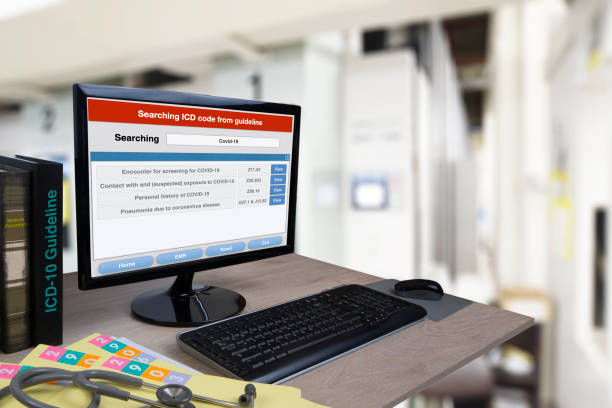What Is an Industrial Computer?
An industrial computer is a special type of computer that is used for industrial applications. These industrial computers have a special chassis and backplane and are equipped with PCI or ISA slots. They also have a special power supply. Since these computers need to work continuously, they are more expensive than ordinary computers. They also require a long lifespan, so they are not cheap.
Rugged design
Rugged computers are designed to withstand the toughest environments, such as military applications and oil & gas environments. The engineers behind these computers select components that are resistant to the extreme conditions and conduct power in a manner that produces minimal thermal energy. They also use simulation to determine the proper placement of components and to ensure that heat dissipation is not compromised. Additionally, the design of the rugged PC’s case and enclosure helps ensure that the device will resist shock, vibration, and other environmental stresses.
In many industries, rugged computers have a high level of reliability and can withstand harsh conditions. Today, you can buy industrial PCs that are fanless, waterproof, and drop-proof. They are also extremely compact, allowing you to fit them into tight spaces and enclosures. They can also withstand extreme temperatures.
An industrial computer with rugged design is an ideal choice for applications where the computer will be exposed to high levels of water, dust, and debris. They are also ideal for high-volume manufacturing environments. Because of their ability to withstand these harsh environments, they can significantly reduce downtime and increase productivity. The ability to operate in these environments has made rugged computers the industry standard.
Rugged industrial PCs are able to withstand shocks and vibrations, and the hard shell enclosure protects the internal components. They are also designed to withstand extreme temperatures and humidity. Rugged industrial computers also help you monitor and send data to remote locations. In fact, they are used in military applications, as well as in food processing facilities. They are used to automate operations such as machine vision and packaging inspection. They can even help in healthcare environments where they can detect anomalies and improve precision and efficiency.
A robust industrial PC also needs a great cooling system. This is because overheating can damage the components inside it and reduce performance. Also, it can destroy the computer. A good cooling system keeps the components within their safe operating ranges. A cooling system can include fans, liquid cooling, or heat sinks. Taking the time to learn how your rugged industrial PC cools itself will help keep internal components from becoming damaged and extend its mean time between failure.
Customizability
Industrial PCs are a great option for rugged environments. These computers are built to withstand the harshest conditions, and they can function continuously for 24 hours or longer without freezing or overheating. These computers are also capable of controlling remote equipment. Moreover, they are very easy to customize and configure.
Industrial computers can be customized to meet specific user and customer needs. These devices are often equipped with legacy ports, VESA mount options, and dual hard drive support, as well as a wide range of customizable parameters. They can also interface with increasingly complex networks and equipment. The customizable features of industrial PCs make them a great choice for rugged environments.
For industries that deal with large amounts of data, robust industrial computers are a must. They should be flexible enough to meet future needs, especially since Big Data is a growing trend. Moreover, industrial computers can be upgraded by adding extra ports or spare parts. OEMs should be able to help with this process.
Industrial PCs can monitor and control an entire system. They also have the capability to control machine tools. These PCs also have the capability to display important information. They have high processing power, large memory capacity, and fast connectivity. Moreover, they can also be customized to meet the manufacturing needs of companies. This boosts productivity and efficiency.
Durability
Durability is an important consideration when choosing an industrial computer. Since these machines are used in industrial production, they are built to withstand rough handling. Industrial PCs may have features such as enhanced thermal management, dust-resistant enclosures, and higher-performance hardware. They are also more flexible and modular than consumer PCs. This makes them easier to integrate into production systems.
Industrial computers are designed to withstand extreme conditions, including dust and wet environments. They also have shatter-proof screens and are sunlight-readable. This makes them ideal for outdoor industrial applications. They can also have fully sealed keyboards and trackballs. Many industrial PCs also have NEMA 4X-rated enclosures that allow them to be mounted in a number of different ways.
Industrial computers are built with heavy-duty materials that can withstand vibrations and shocks. In addition to using high-quality components, these computers have been rigorously tested to withstand a wide operating temperature range. Their chassis is made of an extruded, heavy-duty metal. This makes them resistant to shock and vibration, two common hazards in industrial settings.
Industrial PCs have a longer life span than consumer PCs. Industrial PCs can be expected to last up to seven to 10 years. The extended lifespan of industrial computers allows users to implement long-term strategies, and ensures that their technical set-up remains reliable and stable. This is especially useful in applications that require continuous operation. Consumer PCs are typically designed to be switched off, so if your machine needs to run 24 hours a day, it is better to invest in industrial PCs that have an extended lifespan.
Durability is another critical factor when selecting industrial PCs. Industrial PCs are designed to operate in tough conditions, so the durability of their hardware is vital for the efficiency of your operations. The durability and reliability of industrial computers make them a vital component of an enterprise-level computing deployment.
Cost
Industrial computers are all-in-one computers that are usually used for process control and data acquisition. They can also be used as a front-end for another control computer. They are often custom-written, although many manufacturers sell off-the-shelf packages that can provide the basic programming needed. The cost of industrial computers is significantly higher than that of consumer electronics. These systems are designed to be used in harsh environments and have higher performance requirements. They are used in industries such as solar power, aerospace, and transportation.
These industrial PCs are used to automate processes and provide real-time planning and control. They provide greater visibility into supply and distribution activities, which in turn helps companies make better decisions. Industrial PCs are often used to automate processes, which is often the most expensive process for a factory. While automation can help reduce the overall cost of production, there are still unforeseen costs associated with it. These costs are often accompanied by training costs, which may outweigh the actual savings of automation.
Industrial PCs also help enable the Internet of Things (IoT). These devices enable businesses and communities to collect vast amounts of data from various sources. They also provide extensive I/O options, making it easy to connect sensors and machines anywhere. As a result, industrial PCs are increasingly becoming commonplace in nearly every industry.
Cost of industrial PCs varies greatly based on their technical specifications. They can range anywhere from 300EUR to more than 2000EUR per piece. Cost is a good starting point for any purchase, but it is not the only determining factor. Cost-effectiveness and reliability are two other factors that you must consider before buying an industrial PC.
Applications
Industrial computers are specialized computers designed for specific applications. They differ from conventional commercial PCs in many ways, including their longevity and ability to support a wide variety of legacy applications and devices. These computers are often designed to serve as front-ends for other control computers, and the software on them can be customized to match the specific application requirements. In addition, industrial computers support a wide range of interfaces, from legacy analog serial ports to the newest digital universal serial bus connectors.
Industrial computers have a modular hardware architecture, which enables them to receive signals from industrial sensors and update them to operate actuators. These computers are also able to run real-time operating systems. Industrial computer development involves elaboration of the hardware architecture, software testing, and realization of a process control system.
Industrial computer applications also include security solutions. These computers are designed for rugged environments and are equipped with multiple PoE ports for stable connections with IP cameras. This allows the industrial computer to transmit video footage and data while also delivering power. This helps improve passenger safety and security. Industrial computers are increasingly becoming an indispensable part of the modern industrial landscape.
Many industrial computer applications are designed to automate processes and monitor the condition of assets. The computer can be embedded directly into the machinery or attached to it with cables to provide real-time data. These devices also enable manufacturers to identify potential problems in their processes before they happen and to optimize their productivity. For example, in the manufacturing industry, industrial computers have significantly improved productivity.
Industrial computers are designed to last for a long time, so they should be built with components that can withstand continuous use. The main components of industrial computers include solid-state drives (SSDs) instead of traditional hard disk drives (HDDs), which are prone to failure. Additionally, industrial computers are designed to be fanless, because fans can cause excessive heat and can damage expensive components.



